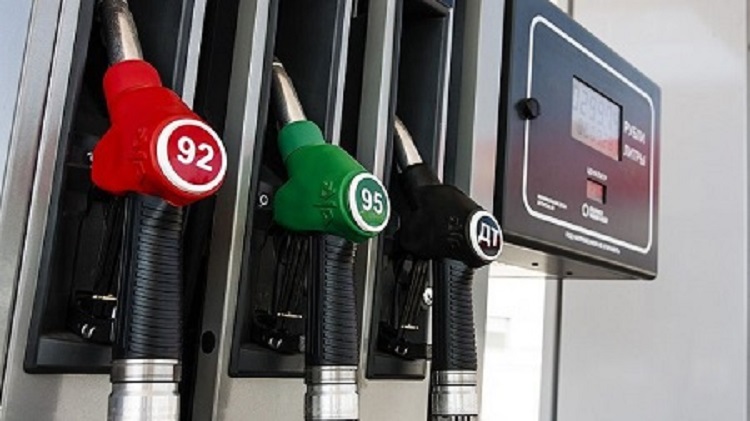How America can use natural gas and oil exports as a diplomatic force multiplier.
 Despite the turmoil of recent years, when U.S. allies find themselves in tight spots, they still expect that America will come to their assistance. And despite the worries of dwindling military and diplomatic resources, the U.S. government still has many other tools at its disposal—namely, market forces. An emerging case in point is America’s newfound energy abundance, particularly in natural gas.
Despite the turmoil of recent years, when U.S. allies find themselves in tight spots, they still expect that America will come to their assistance. And despite the worries of dwindling military and diplomatic resources, the U.S. government still has many other tools at its disposal—namely, market forces. An emerging case in point is America’s newfound energy abundance, particularly in natural gas.
The U.S. natural gas market over the past several years has become a source of envy for other foreign powers. The United States quickly became one of the world’s leading producers of natural gas and boasts the fourth-largest supply of recoverable shale gas reserves in the world. Even with prices falling, total U.S. natural gas production in terms of dry gas volume averaged 6.3 percent higher in 2015 versus 2014, according to the Energy Information Agency.How can these assets at home help our allies abroad? The answer could rest, in part, with exports of U.S. liquefied natural gas (LNG).It’s no secret that as U.S. production of natural gas continues to increase. Domestic stockpiles are about 25 percent above levels from one year ago and about 23.4 percent above the five-year average, and domestic consumption is well below current production levels. As a result, we are being increasingly woven into the international conversation on LNG exports, so much so that, according to a March 11 Forbes article, “After Qatar and Australia, the U.S. could easily become the world’s third-largest LNG supplier by 2020. We have a great advantage over other LNG exporters because we can reconfigure our vast LNG import structure to export.” BP’s recently released Energy Outlook 2016 Edition also predicts that the United States will become a net exporter of gas “later this decade.”These are exciting forecasts, especially following the first export of U.S. LNGearlier this year from the Sabine Pass LNG terminal in Louisiana to South America.Excitement for these developments has begun to ripple throughout Europe, which currently imports more than half of its energy from Russian gas supplies. East European countries such as Lithuania, Ukraine, Hungary, and Bulgaria remain more than 80 percent dependent. BP projects that European dependence on imported gas will increase further, which is cause for alarm because Russia has long viewed its energy abundance as a weapon to assert political pressure and, occasionally, achieve dominance. Examples are the repeated threats and actions by Russia to disrupt and cut off its natural gas supply to Ukraine in the midst of political conflict, and Gazprom’s current cutback on pipeline gas to Turkey.By utilizing LNG facilities in the Baltic region and North-South pipelines, U.S. LNG exports can begin to unshackle these countries’ reliance on Russian gas supplies, bringing much needed security and U.S. commercial presence to the region. While it’s early in the export process, and while building export terminals is expensive and time-consuming, there is little doubt that American LNG will supply the European market. Cheniere Energy, the company that exported the first shipment of U.S. LNG this year, estimates that half of its future LNG exports will go to Europe. The actual volume and pace depend on Europe’s capacity to build additional regasification facilities, connecting pipeline, and storage capacity.A report released in January by the Atlantic Council makes the point: “U.S. LNG export projects complement European Union (EU) gas policy and energy security strategy…. LNG can provide for Europe’s energy security and could help LNG compete with pipeline gas in Europe from Russia, Europe’s dominant supplier.”A similar situation could also unfold in Asia. According to the International Energy Agency, more than half of the growth in demand for natural gas through 2020 will occur in Asia. This is hardly surprising, considering that large economies in the region like South Korea, Japan, and Taiwan remain more than 90 percent dependent on energy imports. Japan and South Korea are today the world’s largest importers of natural gas, respectively, according to the Energy Information Administration (EIA). But more than half of these two countries’ LNG import supplies move through the South China Sea, where military tensions and security threats continue to build. This presents significant issues for these allies, to say the least, and has resulted in Japan and South Korea echoing our European allies’ call for the United States to increase LNG exports to the region to foster stronger geopolitical momentum.The security implications of allowing more U.S. LNG exports into the global marketplace are strong. But this story cannot be told in full without mentioning another burgeoning resource that also showcases America’s power in shaping international diplomacy through its energy exports: crude oil.In 1974, the U.S. outlawed exports of crude oil due to an environment consisting of record low production coupled with overreliance on supplies from Saudi Arabia. But in December, Congress and President Obama reversed this forty-year-old Executive Order as part of the 2015 omnibus spending bill. Why? Because last year the United States became the world’s top producer of oil and natural gas, unseating Russia as top dog in fossil fuels.Of course, the recent decision to unbridle U.S. exports of crude oil in the global marketplace was, in part, the result of capitalization on favorable market conditions. But, as with U.S. LNG exports, it was also the realization of America’s ability to utilize this resource to strengthen security abroad, including for our European and Eastern Asian allies who depend on crude oil from Russia and Iran.U.S. policy is now and must remain connected to the energy security of our allies abroad. The global energy market is a highly integrated system, and the welfare of the system and its participants is something we should take a strong interest in protecting. U.S. LNG exports are one of the tools we have to ensure its stability. The rewards are not just economic—increased jobs and government revenue at home—but also political, with the ability to free U.S. allies from the grip of threatening nations. The next President must use America’s extraordinary energy capabilities to help ensure increased security abroad.











